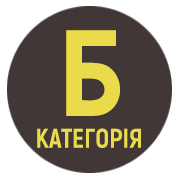METHODS FOR A GLOBAL SHAKESPEARE PEDAGOGY
DOI:
https://doi.org/10.32782/folium/2025.6.5Keywords:
Global Shakespeare, pedagogy, translation, adaptation, subtitlesAbstract
Courses focused on the subarea of Shakespeare studies termed “global Shakespeare”, have been for some time making their way into the offerings of university departments worldwide. These courses will usually be offered as themed seminars for more advanced undergraduate or sometimes postgraduate (graduate in the US terminology) students, alongside courses such as “Shakespeare and Gender”, “Shakespeare in Performance”, or “Shakespeare on Film”. While global Shakespeare courses will typically share some of the methodological features and pedagogical challenges with these courses, they also present a distinct set of challenges specific to the multilingual, multicultural, and multimedia nature of the materials that they by their very nature cover.This article undertakes a systematic examination of the considerations and challenges involved in constructing and teaching a global Shakespeare course.It is structured around discussions of three related methodological issues which anyone involved in the planning, delivering, or assessing of such a course will face: what role the original Shakespeare plays will play in it; what materials will be included/excluded under the aegis of “global Shakespeare”; and how materials in languages other than English will be incorporated and taught.
References
Flaherty, K., Gay, P., & Semler, L. (Eds.). (2013). Teaching Shakespeare Beyond the Centre: Australasian Perspectives. Palgrave.
Hutcheon, L. (2006). A Theory of Adaptation. Routledge.
Joubin, A. (Ed.). (2024). Contemporary Readings in Global Performances of Shakespeare. Bloomsbury.
Joubin, A. (2014, October 20). Brave New Worlds’: From Shakespeare’s Globe to Global Shakespeare [public lecture]. Trinity College Dublin, Ireland.
Landon Barnes, T. (2009). Hip Hop Macbeth, ‘Digitized Blackness’, and the New Millennial Minstrel: Illegal Culture Sharing in the Virtual Classroom. In S. Newstok and A. Thompson (Eds.), Wayward Macbeth: Intersections of Race and Performance (pp. 161–172). Palgrave.
Lanier, D. (2011). “I’ll Teach You Differences”: Genre Literacy, Critical Pedagogy, and Screen Shakespeare. In A. Guneratne (Ed.), Shakespeare and Genre: From Early Modern Inheritances to Postmodern Legacies (pp. 257–270). Palgrave.
Massachusetts Institute of Technology. (2025). MIT Global Shakespeare Project. https://shakespeareproject.mit.edu/
Thompson, A., & Turchi, L. (2016). Teaching Shakespeare with a Purpose. Bloomsbury.
Thurman, C., & Young, S. (Eds.). (2023). Global Shakespeare Studies and Social Justice. Bloomsbury.











